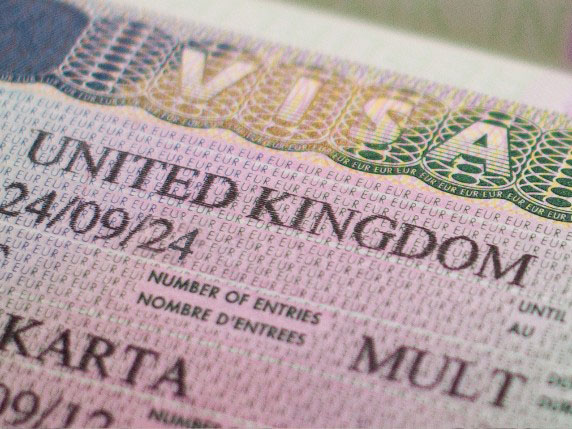In this month's legal update we'll cover:
Coronavirus: Assistance to businesses update
Coronavirus Job Retention Scheme Updates
As promised, this scheme was open on 20 April 2020 for employers to make claims for up to 80% of employee wages to a maximum of £2500 per month. HMRC aims to pay employers within four to six working days after submission of their claim. Employers will then be able to claim 14 days before payments are due to employees.
There have been a number of updates and clarifications to this scheme this month, amongst other things, it was clarified that this scheme is available for employees who stopped working for their employer after 28 February 2020 for any reason, not just those who were made redundant after that date. The date for qualification has also changed from 28 February to any employee whose details were in the employer’s automated payroll system by 19 March 2020. For further details about the scheme and how to apply please see our Coronavirus advice for employers.
HMRC Guidance for employers on reclaiming statutory sick pay (SSP)
If your employees have been paid SSP as a result of shielding due to public health guidance, self-isolating or having coronavirus relating to the COVID-19 pandemic , HMRC published guidance at the beginning of this month advising how to do this under The Coronavirus Statutory Sick Pay Rebate Scheme.
This scheme will repay employers the current rate of SSP paid to current or former employees for sickness relating to a maximum of two weeks for the above reasons starting on or after 13 March 2020.
Employees do not have to submit fit notes for employers to make a claim. The scheme can be used for any type of employment contract, if an employer is claiming the SSP because of a COVID-19 reason, had a payroll scheme by 28 February 2020 and had fewer than 250 employees on 28 February 2020. Employers should keep records relating to SSP claimed, the reason why an employee could not work, the start and end dates during which an employee could not work, an employee's SSP qualifying days, and National Insurance numbers of all employees who have been paid SSP, for at least three years. The scheme should be ready for online claims to be made by employers soon.
Company obligations
This month it has been announced that Companies House will temporarily pause the strike off process to prevent companies being dissolved. This should help ease the pressure on those businesses which need extra time to update their records and help them avoid being struck off the register. Companies which have been issued with a late filing penalty may also be shown more leniency if their justification is that this was due to COVID-19 and there is already an automatic three month extension to filing accounts for any business which applies and says they have issues relating to COVID-19. Companies will also temporarily be extended greater flexibilities relating to AGMs, being able to hold AGMs online or postponing the meetings without being in breach of their legal obligations.
Corporate governance guidance
There have been a number of guides for businesses to ensure compliance with corporate governance issues, including ICSA’s guide on how AGMs can be held (where it is suggested you adapt the basis on which you hold the AGM, delay convening the AGM if notice has not yet been issued, postpone the AGM if permitted under the articles of association, adjourn the AGM or conduct a hybrid AGM, if permitted under the articles of association or a combination of these).
Pensions
Earlier this month the Pensions Regulator published COVID-19 guidance for employers regarding their auto-enrolment duties and pension contributions. Whilst enforcement decisions will take into account these ‘challenging times’, unsurprisingly, the statutory duties to auto-enrol new and eligible employees (and re-enrol employees who qualify and who have previously opted out) remain in force.
Under the Coronavirus Job Retention Scheme (CJRS) the ‘mandatory employer contribution’ means contributions of 3% of a furloughed employee's qualifying earnings for auto-enrolment purposes. Employers should continue with their usual payroll and pension contribution processes.
If an employer pays contributions exceeding 3% of qualifying earnings for furloughed staff, it will need to calculate minimum contributions at the 3% of qualifying earnings level for the purpose of claiming under the CJRS. Any excess pension contribution usually made by an employer will not be funded under the CJRS and cannot be claimed under it, employers must continue to pay these amounts themselves unless the employee’s contract or the scheme rules allow for these contributions to be reduced.
If employee consultation is required under the statutory pension consultation regime, the Regulator will take no action where an employer fails to consult for the full statutory 60-day period. This only applies where an employer has furloughed employees and is proposing to reduce employer contributions to 3% level for these employees, during furlough. This will continue until 30 June 2020, when it will be reviewed.
Employment
Changes to the Calculation of National Minimum Wage
On 6 April 2020 some amendments were made to salaried-hours work and the National Minimum Wage (NMW), which widen the pay arrangements compatible with workers being treated as performing salaried-hours work under the NMW rules. The guidance also looks at how a ‘salary premium’ (a premium paid to a worker for their basic hours) is not counted towards NMW pay and that employers can change the calculation year for salaried-hours workers so that they can bring them under one calculation year aligning with tax, annual leave or accounting years. There are transitional provisions for workers re-classified as salaried-hours workers from 6 April 2020.
Guidance on calculating holiday pay for workers without fixed hours or pay
From 6 April 2020 a worker without fixed hours or pay should have their holiday pay calculated using a 52-week reference period, not 12 weeks. Where a worker does not have 52 weeks' worth of pay data, the employer should use as many weeks they have.
If a worker takes holiday before they have worked a full week, the employer should pay the worker an amount which fairly represents their pay for the length of time they are on leave. In working out what is fair, an employer must consider the worker's pay, the pay they have already received and what is paid to other workers doing a comparable role for the employer. Weeks in which the worker receives no pay are excluded from the reference period, and earlier weeks in which pay was received will be counted instead, even if this takes the employer back more than 52 weeks but not beyond a 104-week limit. This area of employment law is still likely to be challenging, but it is hoped that the new guidance will provide more clarity.
Commercial
Services for reporting unfair behaviour during the COVID-19 outbreak
The Competition and Markets Authority (CMA) has launched an online reporting service for consumers and businesses to report unfair commercial activity, such as inflated pricing, relating to COVID-19. Similarly, the Advertising Standards Agency (ASA) has also introduced a new reporting form enabling consumers to notify the ASA about adverts, published advice and any scams related to coronavirus. These forms can be accessed through the CMA and ASA websites.
Chancellor announces billion-pound support package for innovative firms
The Chancellor of the Exchequer has announced this month that UK businesses in innovative sectors such as life sciences and technology will be given further government support to get through the coronavirus pandemic. This includes a £500 million loan scheme which will launch in May, called the Future Fund (which is funding from both the government and the private sector), and a £750 million of grants and loans for SMEs focused on research and development.
To be eligible for the Future Fund, a business must be unlisted, registered in the UK and have raised at least £250,000 in equity investment from third party investors in the last five years. An initial £250 million will be open until the end of September. The targeted support for SMEs will be available through opting-in to the loans through Innovate UK's grants and loan scheme and should be available for payment by mid-May.
Corporate
Prudential Regulation Authority statement on dividend payments, share buybacks and cash bonuses
The Prudential Regulation Authority (PRA) published a statement at the end of last month that it welcomes the decisions by the boards of the large UK banks to suspend dividends and buybacks on ordinary shares until the end of 2020, and to cancel payments of any outstanding 2019 dividends in response to a request it made last month.
The PRA also stated that it expects banks will not pay cash bonuses to senior staff and will take any appropriate further actions relating to the accrual, payment, and vesting. Whilst banks' decisions will mean shareholders do not receive dividends, this along with the other suggested measures are sensible as banks will be required to play a critical role in supporting the economy through economic disruption.
Banking and Finance
ICC publishes guidance on the impact of COVID-19 on trade finance transactions
Early this month the International Chamber of Commerce (ICC) looked at the impact of COVID-19 on trade finance transactions subject to ICC rules and issued practical advice on best practices in handling these transactions. Force majeure clauses are focused on in particular, but also delivery and examination of documents, liaison with applicants and beneficiaries, document examination period and places for presentation. The ICC has indicated that further guidance will be needed and will produce a FAQ section for the ICC website.
Data Protection
The Information Commissioner has published data protection considerations relating to COVID-19 and location data
On 21 April 2020, the European Commission launched a European COVID-19 data platform to bring together data, such as DNA sequences, data from pre-clinical research, clinical trials and epidemiological data for sharing and analysis.
Whilst contact tracing and location data technologies are undoubtedly going to be a helpful tool in overcoming the COVID-19 pandemic, by using smartphone apps and anonymised mobility data for contact tracing and predicting and modelling the spread of the virus, this type of personal data must be used fairly and proportionately. Therefore, the Information Commissioner has considered and written about how location data technologies can be used whilst complying with data processing principles and data protection laws, stating that organisations should first consider the following questions:
- Have you demonstrated how privacy is built into the processor technology?
- Is the planned collection and use of personal data necessary and proportionate?
- What control do users have over their data?
- How much data needs to be gathered and processed centrally?
- When in operation, what are the governance and accountability processes in your organisation for ongoing monitoring and evaluation of data processing, that is to ensure it remains necessary and effective, and to ensure that the safeguards in place are still suitable?
- What happens when the processing is no longer necessary?
As contract tracking and tracing appears to be a priority for the government in order to control the numbers contracting coronavirus after lockdown has been eased, this will be an area where there will be further developments. We will keep you updated.
Intellectual Property
IPO and patents services during the COVID-19 lockdown
The IPO has declared that although they encourage businesses to still work to IPO deadlines if they can, that there is a safety net where this is not possible. From 24 March 2020 until the foreseeable future are ‘interrupted days’, meaning that deadlines for patents amongst other application deadlines for IP will be extended until the IPO notifies the end of the ‘interrupted days’, which will be done after giving at least 2 weeks’ notice. The situation was reviewed on 17 April and the period of interruption has been extended until at least 7 May when this will be reviewed again.
Brexit
House of Lords Library publishes article on COVID-19 implications for transition period
On 20 April 2020, the House of Commons Library published an article questioning whether the legal and procedural hurdles, in the withdrawal agreement and in UK domestic law allow for the UK to extend the transition period for Brexit.
The article considers that:
- An extension to the transition period is possible if it is a one-off and for no more than two years. The length of an extension and other terms, such as the UK's financial contribution to the EU budget for the extended period would need to be agreed by a decision of the joint UK-EU committee before 1 July 2020.
- Section 15A of the European Union (Withdrawal) Act 2018 prohibits UK ministers from agreeing to an extension of the transition period in the joint committee and so this would need to be repealed by passing an Act of Parliament.
- A further Act of parliament would then also need to be passed if an extension were agreed, to change the IP completion day in section 39 of the European Union (Withdrawal Agreement) Act 2020 from 31 December 2020 at 11.00 pm (UK time) to include the new proposed time.
- Parliament would find it difficult at the present time to debate and approve legislation during the current COVID-19 pandemic. Even with a hybrid chamber of 50 physically in the chamber and a further 120 MPs participating virtually to question ministers, these arrangements would not allow MPs to vote remotely on a motion or on legislation if attending virtually. Only those physically present, or who have a proxy, could vote.
*Please note that this update does not constitute formal legal advice and should not be relied upon as such. Always ask a solicitor if you are unsure of how the law relates to your business.






